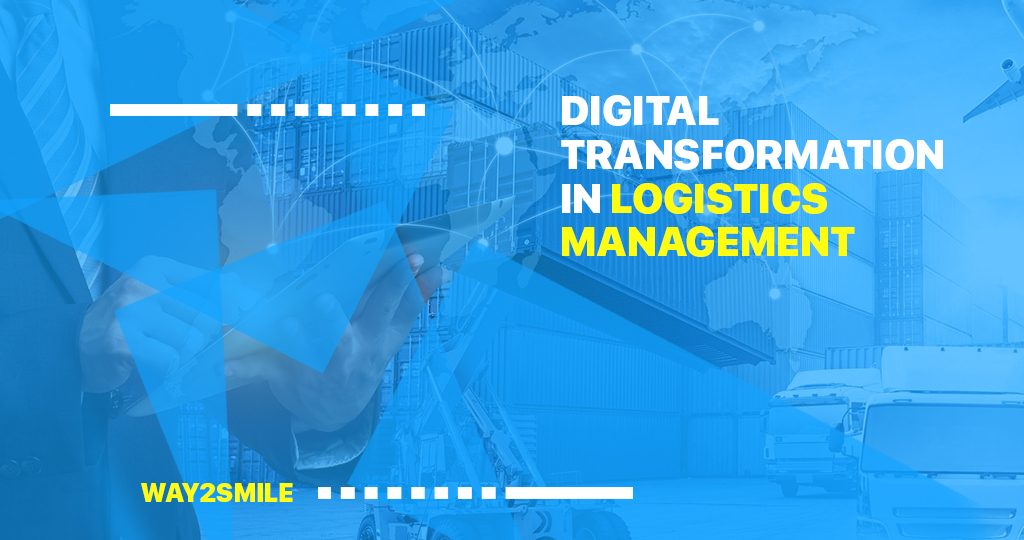Key Takeaways
The adoption of digital technologies is reshaping the logistics industry, optimizing supply chains, and improving operations.
Efficiency gains, cost reduction, improved communication, and higher customer satisfaction are among the advantages of embracing digital transformation in logistics.
Prioritizing employee satisfaction and engagement is key to the success of logistics transformation, enhancing retention and productivity.
Resistance to change, company culture, and legacy systems are hurdles to digital logistics, but understanding and addressing them is crucial.
Right from the food we eat to the dress we wear, everything happens with the help of the supply chain industry. In the future, we can expect this industry to take it to the next level. Enterprises are checking for limitations and rectifying them. Implementation of Digital Transformation in Logistics is already making several significant developments in the logistics industry, but the employees of the logistics industry feel that their needs aren’t met completely. Enhancing not just your supply chain capabilities but also your daily employee management processes can bring about numerous advantages, which we've compiled in this blog for your convenience. So, how can digital transformation help with logistics and supply chain management? And how can we support employees in logistics with digital transformation and effective training? Let’s go ahead and seek answers.
What is Digital Transformation in Logistics Management?
Digital transformation (DX) in logistics is the adoption of digital technologies to optimize the performance, efficiency, and adaptability of logistics systems. The central objective is to better address the demands of customers and businesses. With digital logistics, the logistics industry integrates digital tools and solutions to streamline supply chains, minimize delays, and enhance overall service quality. This shift towards automation, data analytics, and smart technologies allows for real-time monitoring, decision-making, and communication, ultimately creating a more responsive and customer-centric logistics environment.
Tips to Implement Digital Transformation in Logistics
Here are our top tips to successfully implement digital transformation in the logistics industry:
Create a Digital Transformation Plan: Develop a roadmap to evaluate current processes, introduce new technologies, and enhance existing systems for better logistics operations.
Align with Business Goals: Ensure your digital transformation strategy is in sync with your business objectives to achieve the most impact on your logistics operations.
Maintain clear communication: Keep all stakeholders well-informed about your digital transformation objectives and collaborate closely with IT and relevant departments to troubleshoot issues.
Stick to Your Timeline: Set and adhere to a realistic timeline to stay on course and accomplish your digital transformation goals. Using the right tools, whether for employee engagement, new systems, or order tracking, is crucial for driving performance improvements in logistics. By following these digital transformation strategies, you can effectively steer digital transformation in logistics, benefiting the entire organization.
Advantages and Benefits of Logistics Digital Transformation
Digital transformation (DX) in logistics offers a multitude of advantages and benefits, aligning with core goals that include:
Cost Reduction: The integration of digital technologies enables companies to automate processes, mitigate employee errors, and decrease overhead costs associated with tasks like recruitment, training, and onboarding. This translates to cost savings and more streamlined operations.
Improved Communication: An important aspect of DX is enhancing communication, fostering better internal and external interactions. By doing so, companies can elevate employee satisfaction, leading to increased retention rates and stronger client relationships.
Customer Happiness: Logistics companies striving for digital transformation can achieve higher levels of customer satisfaction. This is achieved through enhancements in product quality, faster delivery times, and the ability to track and respond to customer feedback and requests effectively.
Employee Engagement: Often overlooked but vital, DX efforts in transportation and logistics can significantly boost employee engagement and overall happiness. These factors directly impact employee retention and productivity, ultimately benefiting the organization.
Increased Profits: Boosting profits and driving ROI is a key overarching goal of DX in the industry. This aspect can get support from IT leaders and CEOs, as the efficient utilization of digital technology can lead to financial growth and business success.
Barriers of Logistics Digital Transformation
While digital transformation offers many benefits to logistics companies, there are potential hurdles to overcome, the barriers include:
Resistance to Adapt: Employees may resist changes, especially if they perceive increased workloads or alterations to familiar routines, this stands as one of the reasons why businesses resist adopting digital technologies. To overcome employee resistance, providing comprehensive training and support, highlighting the benefits of digital tools, and involving employees in decision-making can help you digitalize logistics operations.
Work Culture: An organization's resistance to change can act as a significant obstacle, hindering the successful implementation of new technologies and strategies. Foster a culture of openness where innovation is encouraged and embraced and employees are actively involved in the transformation process to overcome this barrier.
Legacy Systems: Outdated, costly-to-replace infrastructure poses challenges, requiring time and effort to digitally upgrade, gradually phasing out outdated systems, investing in modular upgrades, and ensuring a smooth transition with thorough testing and user training will streamline the digitalization of logistics operations. Understanding these challenges helps you prepare and address them, fostering a supportive culture and modernizing systems for successful digital transformation in logistics.
Conclusion:
The future of logistics management is set for remarkable transformation through the integration of digital technologies. The adoption of digital transformation in logistics promises to revolutionize the industry, from enhancing supply chain capabilities to improving employee engagement and boosting customer satisfaction. By recognizing the advantages, addressing the barriers, and implementing best practices, logistics companies can position themselves to thrive in an increasingly digital world. At Way2Smile Solutions, a web development company in Dubai, we are dedicated to facilitating logistics digital transformation.
Our experienced team of web developers in Dubai specialize in building web applications and delivering software solutions designed to empower logistics businesses on their journey towards digital excellence. By harnessing the power of technology and innovation, we enable a logistics transformation that will help your company to overcome challenges, enhance operations, and achieve new levels of efficiency, ultimately driving success growth in logistics and making your company ready for digital transformation.







